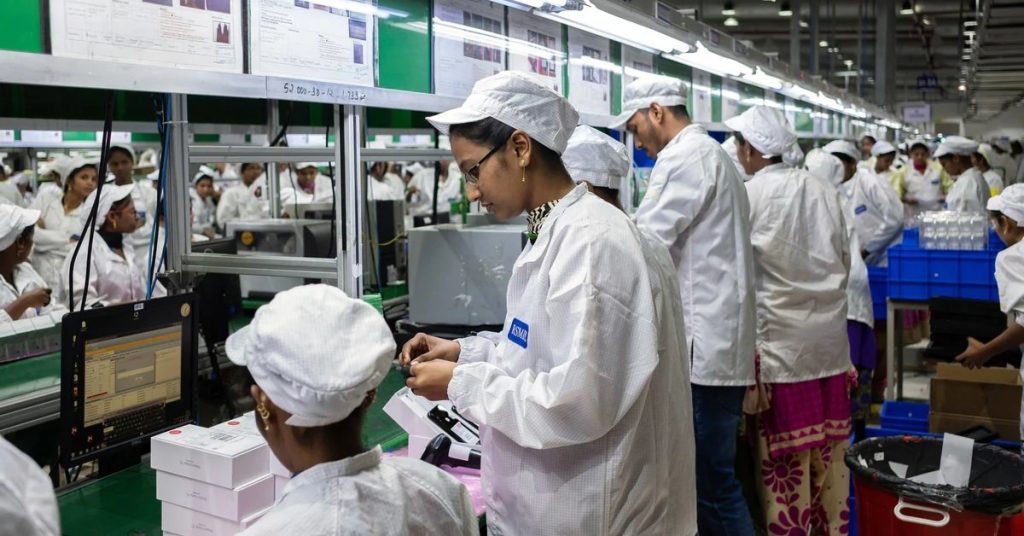Tata Group is in negotiations with a Taiwanese supplier to Apple Inc. about establishing an electronics manufacturing joint venture in India, with the goal of assembling iPhones there.

According to people familiar with the situation, the conversations with Wistron Corp. are geared at making Tata a power in technology manufacturing, and the Indian salt-to-software conglomerate wants to use the Taiwanese company’s capabilities in product development, supply chain, and assembly. If the agreement is successful, Tata will be the first Indian company to manufacture iPhones, which are now primarily built in China and India by Taiwanese manufacturing giants such as Wistron and Foxconn Technology Group.
An Indian company producing iPhones would be a huge help to India’s efforts to challenge China, whose supremacy in electronics manufacturing has been threatened by continuous Covid lockdowns and political concerns with the US. It may also persuade other global electronics manufacturers to explore assembly in India in order to lessen their dependency on China at a time when geopolitical dangers are mounting.
The deal’s structure and details, such as shareholdings, have yet to be finalised, and talks are ongoing, according to the people, who declined to be identified because the conversations are private. According to one of the sources, the idea may include Tata purchasing shares in Wistron’s India operations or the companies constructing a new assembly plant. They could also pull off both manoeuvres, according to the individual.
It was unclear whether Apple was aware of the discussions, which occur at a time when the US tech giant is aiming to diversify its production away from China and strengthen its supply chain in India. Apple is known to collaborate with local businesses in areas where it establishes production bases — but assembling iPhones is a complex task that requires following the US company’s strict timelines and quality controls.
A spokesman from Wistron declined to comment. Requests for response from Tata and Apple were not returned.
According to one of the people involved, the new business seeks to eventually boost the quantity of iPhones built by up to five times what Wistron presently makes in India. According to the sources, a cooperation would also result in Mumbai-based Tata acquiring a stake in Wistron’s manufacturing business outside smartphones.
Tata Group Chairman Natarajan Chandrasekaran has stated that electronics and high-tech manufacturing are significant emphasis areas for the corporation, which is India’s largest conglomerate with over $128 billion in revenue. Tata’s business is dominated by industries such as software, steel, and automobiles, but it has taken early steps in the smartphone supply chain by beginning to manufacture iPhone chassis components in southern India.
A deal with Tata would provide Wistron’s faltering Indian division with a formidable local partner with substantial finances. Tata’s reach extends to automobiles, notably electric vehicles, an area in which many of the world’s technology behemoths are eager to expand.
Wistron began manufacturing iPhones in India in 2017, following years of Apple efforts to expand manufacturing capabilities in the nation. The Taipei-based company now assembles iPhones at its plant in the southern Indian state of Karnataka.
The potential of India’s 1.4 billion strong consumer market, combined with Prime Minister Narendra Modi’s financial incentives for tech production, has prompted Apple’s other important contract manufacturers, Foxconn and Pegatron Corp., to expand in the nation as well. Nonetheless, India’s workforce and factories have not simply embraced the highly controlled processes that Apple needs from suppliers: in two notable episodes since iPhone assembly began in India five years ago, workers have revolted over low wages and inadequate living and working circumstances.
